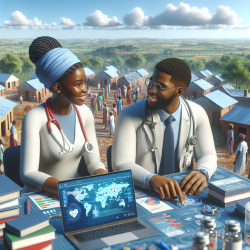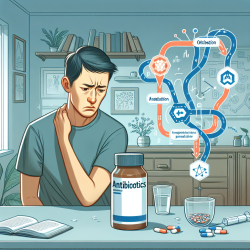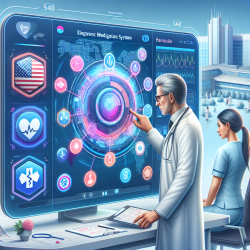Introduction
Medical education plays a crucial role in shaping the attitudes and intentions of future healthcare providers. A recent systematic review and meta-analysis titled Medical students attitudes toward and intention to work with the underserved: a systematic review and meta-analysis provides valuable insights into how medical students' attitudes toward underserved populations evolve throughout their education. This blog explores the findings of this research and offers strategies for practitioners to enhance their skills and commitment to serving underserved communities.
Key Findings from the Research
The systematic review analyzed 55 studies involving over 109,000 medical students, primarily from the United States. The research highlighted a concerning trend: medical students' attitudes toward underserved populations tend to decline as they progress through their education. This decline was observed in both U.S. and non-U.S. studies, with a moderate effect size noted between the first and fourth years of medical education.
Several factors were identified as being associated with more favorable attitudes toward underserved populations:
- Female gender
- Being from an underserved community or ethnic minority
- Exposure to underserved populations during medical education
- Intention to practice in primary care
Educational interventions, particularly experiential community-based learning and curricula dedicated to social accountability, showed the most positive outcomes in improving medical students' attitudes and intentions toward working with underserved populations.
Implications for Practitioners
Practitioners can draw several lessons from this research to enhance their skills and commitment to serving underserved communities:
1. Engage in Community-Based Learning
Community-based learning provides practical, real-world experiences that can positively influence attitudes toward underserved populations. Practitioners should seek opportunities to engage with underserved communities through volunteer work, community health initiatives, or partnerships with local organizations.
2. Advocate for Social Accountability in Education
Practitioners can advocate for the inclusion of social accountability curricula in medical education programs. By promoting educational interventions that emphasize the importance of serving underserved populations, practitioners can help foster a new generation of socially responsible healthcare providers.
3. Embrace Diversity and Inclusion
Diversity and inclusion play a significant role in shaping positive attitudes toward underserved populations. Practitioners should strive to create inclusive environments that value diverse perspectives and experiences, both in educational settings and in practice.
Conclusion
The systematic review underscores the importance of addressing the decline in medical students' attitudes toward underserved populations. By implementing community-based learning and advocating for social accountability in education, practitioners can play a vital role in reversing this trend and ensuring that future healthcare providers are equipped to serve all communities effectively.
To read the original research paper, please follow this link: Medical students attitudes toward and intention to work with the underserved: a systematic review and meta-analysis.










